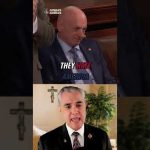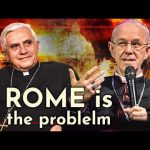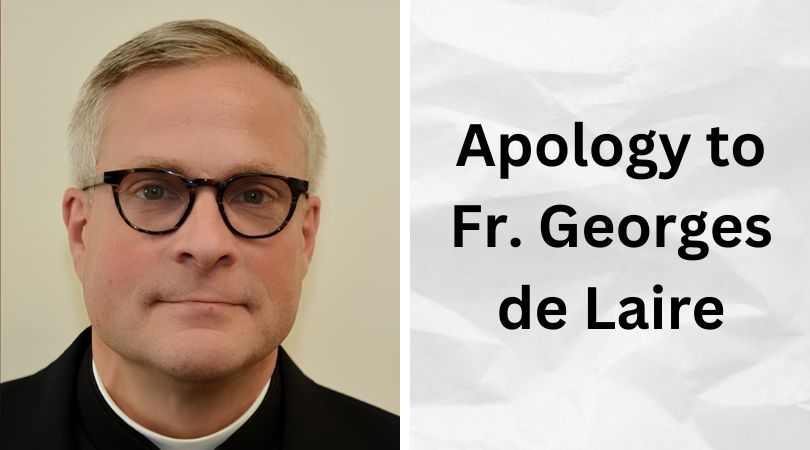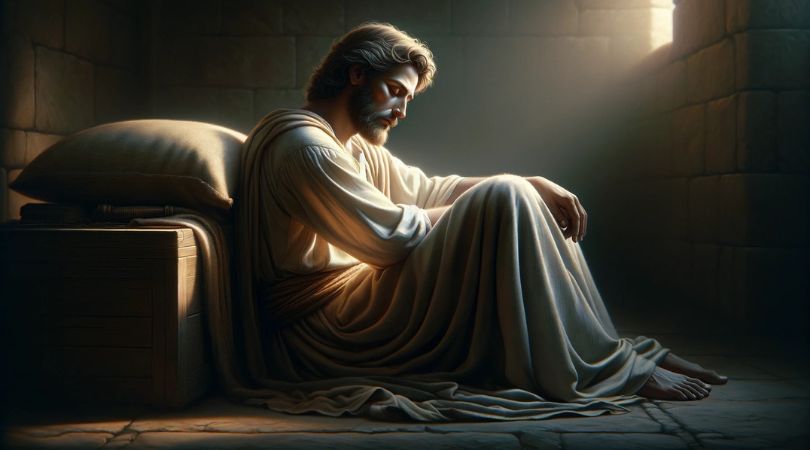WASHINGTON (ChurchMilitant.com) – In response to the Vatican’s latest synodal guidelines, the United States Conference of Catholic Bishops (USCCB) released comprehensive guidelines of its own, suggesting two or three diocesan-wide listening sessions involving Catholics during Lent 2024.
This initiative marks a development in the Synod on Synodality — a process that was launched by Pope Francis in October 2021 and is set to culminate in sessions in Rome in October 2024.
The Vatican’s Synod on Synodality is described on its website as seeking to “plant dreams, draw forth prophecies and visions, allow hope to flourish, inspire trust, bind up wounds, weave together relationships, awaken a dawn of hope, learn from one another and create a bright resourcefulness that will enlighten minds, warm hearts, give strength to our hands.”
It urges the Church’s “whole community” to “pray, listen, analyse, dialogue, discern and offer advice on making pastoral decisions which correspond as closely as possible to God’s will,” the site explains.
Vatican’s Approach
Titled “Towards October 2024,” the Vatican document was developed by the Ordinary Council of the General Secretariat of the Synod. The guidelines serve as an ostensible road map for the Church’s path toward the Second Session of the Synodal Assembly in October 2024.
The Vatican document takes a missionary perspective, urging local communities to engage in reflection guided by the experiences of pluralism and communion — to “inspire in pastoral workers a constant desire to go forth and … elicit a positive response from all those whom Jesus summons to friendship with himself.”
This process, the Vatican proffers, is rooted in the Church’s mission of proclaiming the gospel in today’s world.
The outcome, the Vatican says, is to stir “a missionary impulse capable of transforming everything, so that the Church’s customs, ways of doing things, times and schedules, language and structures can be suitably channeled for the evangelization of today’s world rather than for her self-preservation.”
USCCB’s ‘How-To’
The USCCB’s “Interim Stage Guidelines” detail how the sessions should be handled.
Central to these guidelines are two distinct guiding questions — one about observing “successes” and “distresses” within the Church’s structures, and another on how Church structures can facilitate the proclamation of the gospel and the development of a community of love and mercy.
The U.S. bishops’ guiding questions address the Vatican’s overarching query: “How can we be a synodal Church in mission?” The Vatican stresses the need to enhance co-responsibility in the Church’s mission while finding a balance between the Church’s universal and local dimensions.
The bishops encourage collaboration with Catholic-affiliated entities, including educational institutions, nonprofits and health care facilities.
The initiative aims to foster broader inclusion — hearing voices previously underrepresented in the synodal process, the USCCB explains.
Synthesis and Reporting
The synthesis of these sessions, focused on what the USCCB calls the voices of the “People of God,” is to be submitted to the USCCB by April 8, 2024.
The U.S. bishops are tasked with encapsulating these dialogues into a national report, limited to eight pages, and submitting it to the Synod of Bishops by May 15, 2024. This report will encapsulate the findings from the consultations across the nation.
In 2023, the USCCB issued a National Synthesis Report from prior listening sessions that reflected input from just 1% of 66.8 million U.S. Catholics. Around that percentage of Catholics — or even fewer believers — participated in certain European countries.
The Synod on Synodality or its processes have been criticized by cardinals, archbishops, bishops, Anglican converts, young people, women and others for democratization that they claim entertains changing the Church’s immutable positions on contraception, divorce and remarriage, homosexuality and female ordination, as well as what many call its “uncatholic” conclusions.
— Campaign 31877 —















